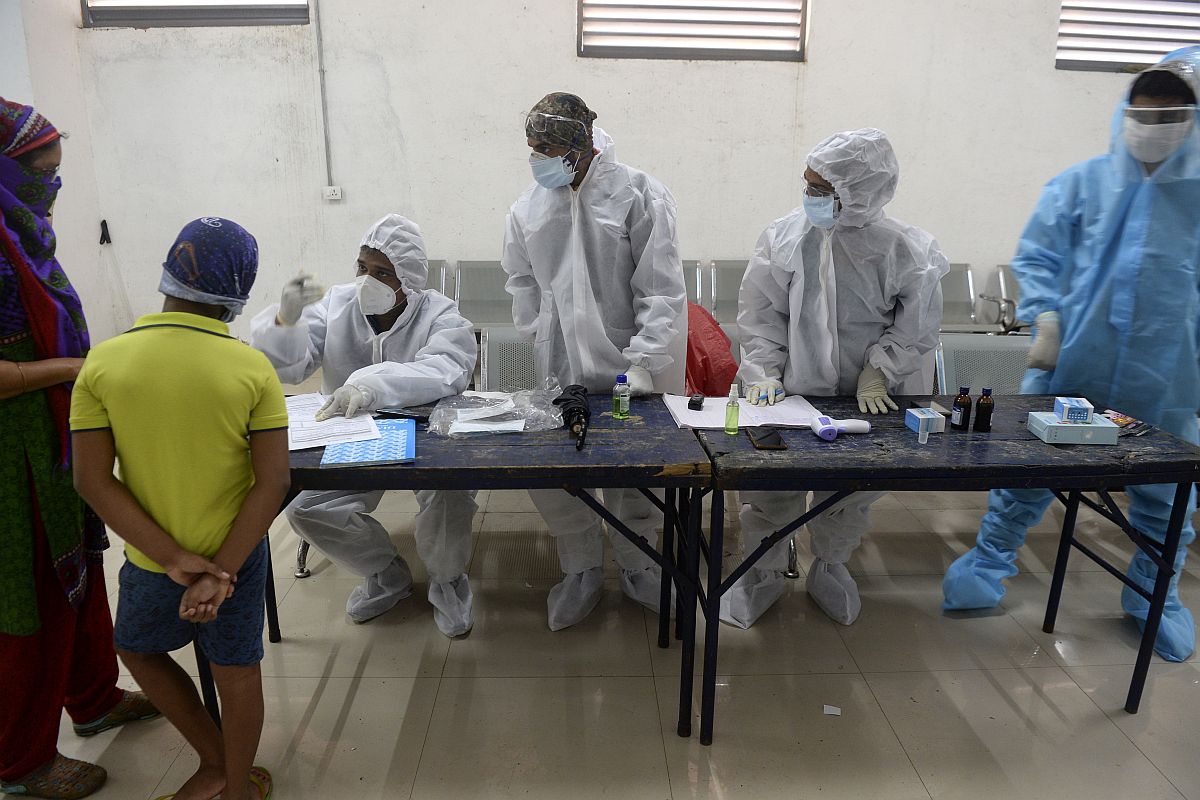Atishi visits Rangpuri, pledges swift action on civic issues
Delhi Chief Minister Atishi visited Rangpuri Pahadi in South West Delhi on Sunday to address grievances after Lieutenant Governor VK Saxena highlighted the area's civic challenges.
Serological test or sero-surveillance is a diagnostic method used to identify antibodies present in our immunity systems when we get infected with the virus.

(File Photo: AFP)
The second serological survey conducted between August 1-7 has shown that 29.1 per cent of people in Delhi have developed antibodies against COVID-19 coronavirus, informed state health minister Satyendar Jain on Thursday.
This accounts to nearly a third of Delhi’s population.
Advertisement
The highest prevalence was in the southeast district, he said.
Advertisement
Jain further clarified that according to scientists, herd immunity is when up to 40 per cent population have virus antibodies.
A total of 15,000 samples were collected during the survey, the health minister informed.
The exercise is aimed at enumerating people who must have developed IgG (Immunoglobulin G) anti-bodies, indicating their exposure to coronavirus. It will also help ascertain whether the capital is moving towards the herd immunity.
Serological test or sero-surveillance is a diagnostic method used to identify antibodies present in our immunity systems when we get infected with the virus.
These types of tests are used for surveillance among communities and can be used on people who have already contracted coronavirus. So if someone has not tested positive in the past but had COVID-19, the survey would find out.
“Depending upon the level of seroprevalence of infection, appropriate public health interventions can be planned and implemented for prevention and control of the disease. Periodic serosurveys are useful to guide policymakers,” an official of the Indian Council of Medical Research (ICMR) had said earlier.
An exercise jointly undertaken by the Delhi government and the National Centre for Disease Control (NCDC), the last serological survey was conducted across Delhi from June 27 till July 10.
In the previous survey, according to the Satyendar Jain, it was found that 24 per cent people in the national capital have developed antibodies from COVID-19 virus, which means that 24 per cent people have got infected by the virus and then recovered. The minister said that it was found in the survey that most of the people were not even aware that they have been infected by the novel Coronavirus.
Following the June survey, the Delhi government decided to conduct serological survey every month to gauge the level and the number of people with antibodies against the infection.
The survey is being carried out in all the 11 districts of Delhi.
In the last survey, out of the 11 districts, eight had sero-prevalence of more than 20 per cent. In the central, north-east, north and Shahdara districts, the sero-prevalence was 27 per cent. Delhi’s south-west area had 12.95 per cent sero-prevalence, the least in the city, followed by south and west Delhi at 18.61 per cent and 19.13 per cent, respectively.
The decision to conduct serological tests in Delhi came at the review meetings held by Union Home Minister Amit Shah with Lieutenant Governor Anil Baijal and Chief Minister Arvind Kejriwal in June.
The other two rounds are scheduled in the first weeks of September and October.
Delhi has so far reported 1,56,139 infections — much lower than what was predicted earlier for the month of August — and 4,235 people have died due to the virus.
Meanwhile, Chief Minister Arvind Kejriwal, while delivering his Independence Day speech at the Delhi Secretariat, had said that the Coronavirus situation in the city is “quite under control” as compared to what it was two months back and thanked all the stakeholders, including the central government, ‘corona warriors’ and different organisations.
Advertisement